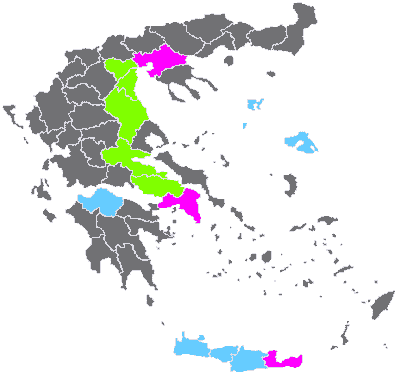Magenta = lived, blue = visited, green = been through.
Greece:

Lived in Lasithi prefecture (down south) for four years; lived in Attica and Thessalonica prefectures for a couple of months apiece.
Did a tour of Crete, a few days each in Iraklion, Rethymon, Hania. Went to Greek dialectology conferences (natch) in Patras and Lesbos.
Caught the train from Athens to Salonica once.
Lots, lots more to see in Greece than I have seen.
Australia:

Lived in Launceston, Melbourne, and spent three months in Sydney.
Visited all capital cities of states and territories.
Spent a summer vacation in Merimbula as a teenager (SW NSW), and spent a few days in Toowoomba and Townsville (work) and Cairns and Broome (vacation).
Drove around Tasmania. Done lots of day trips and two–three day sojourns into central Victoria.